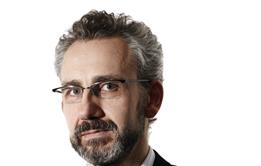House of Commons health committee chair Stephen Dorrell made an electrifying intervention into the NHS reform debate last Thursday.
He was speaking at the HSJ Summit - our event for healthcare leaders - and as he did so text messages flew back to those Department of Health bosses not in the room. Something important was happening.
Dorrell knows a lack of financial focus will allow the opposition to claim the service is unsafe in Tory hands
The HSJ Summit takes place under Chatham House rules, so we cannot report exactly what Mr Dorrell said. Fortunately, he had given us an interview a few hours earlier in which he sent the same message.
And the message was this: delivering the £15bn-£20bn efficiency savings first identified by NHS chief executive Sir David Nicholson last year must be the priority. The reforms set out in Liberating the NHS, the government’s white paper, have a part to play in achieving this goal - especially in making them sustainable - but they are secondary.
In other words - and to use language Mr Dorrell did not - keep your eye on the financial ball and do not get too distracted by GP commissioning.
In the wake of his speech to the summit, delegates gathered to decode its content. It was clear what Mr Dorrell meant, but his delivery and choice of audience left people deeply intrigued.
In heaping praise on Sir David and in other comments, he had reached out to the healthcare management community. Why?
The former Conservative health secretary made it clear that he was acting without instruction from the party hierarchy. But he knows senior Tories are concerned that a lack of focus on how the NHS spends its money will produce poor decisions that will give the opposition the chance to claim the service is unsafe in Tory hands. He also knows that - in this context - NHS managers are vital to keeping the government’s reputation on health intact and that, thanks to the treatment handed out by the ministerial team, many could not give a rat’s arse if the Conservatives were never trusted again.
Mr Dorrell felt strongly that a message needed to be delivered - and deliver it he did in a manner which suggested no fears of a ticking off from party bosses.
It is Mr Dorrell’s ambition to grow the role of the health committee, his political nous and links with the Conservative party machine - David Cameron asked him to co-chair the party’s public policy reform process in opposition - which have led him to be placed fifth in this year’s HSJ100. What he says matters.
But Mr Dorrell is not the highest placed non-DH politician in the HSJ100. Oliver Letwin, the gatekeeper of Tory policy, sits at number two. The dynamic between Lansley, Letwin and Dorrell will be fascinating and profound.
Just as vital, of course, is the relationship between the health secretary and NHS chief executive. HSJ has commented on their different approaches in the past and Sir David’s letter urging, again, more caution over the reform timetable is just the latest chapter. It is unlikely Mr Dorrell’s views will calm those tensions.
Make no mistake, neither Mr Dorrell, nor anybody else in a position of power, is for one moment suggesting that GP commissioning will not happen. As he makes clear, it is government policy for better or worse. Indeed, he shares the common view that its principles are sound. He simply does not believe that it is the “main game”.
A government adviser attending the HSJ summit left the event concluding in sad surprise that many NHS leaders “really don’t like the [white paper] reforms”. No, they do not. Andrew Lansley and his team now have to decide whether that matters or if they can achieve their goals regardless. Whatever they decide, Mr Dorrell and others will be watching and making their views known.
What Dorrell says matters, and his message to the NHS is clear

House of Commons health committee chair Stephen Dorrell made an electrifying intervention into the NHS reform debate last Thursday.
 Currently
reading
Currently
reading
What Dorrell says matters, and his message to the NHS is clear
- 2
- 3































5 Readers' comments